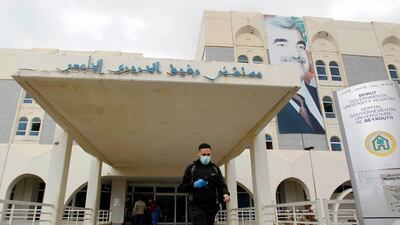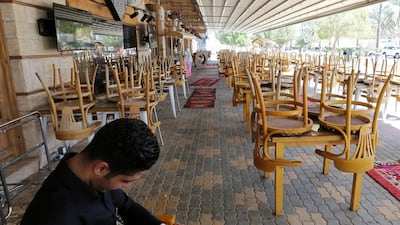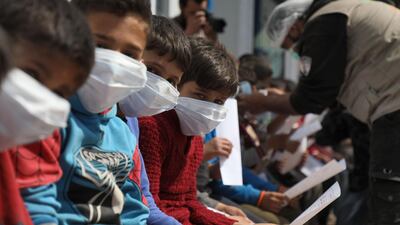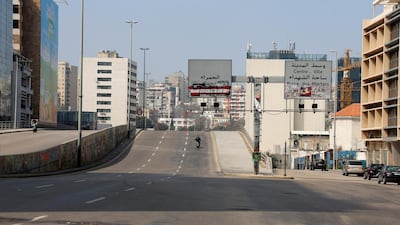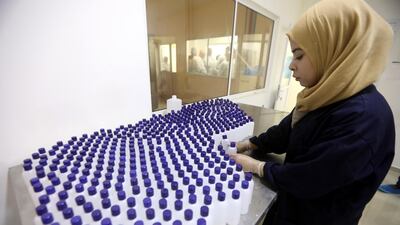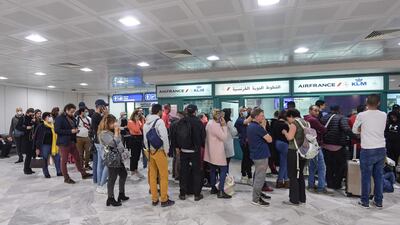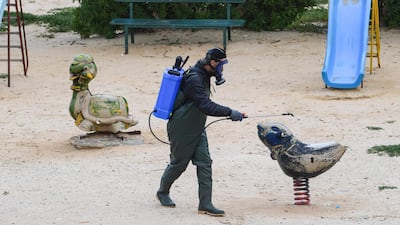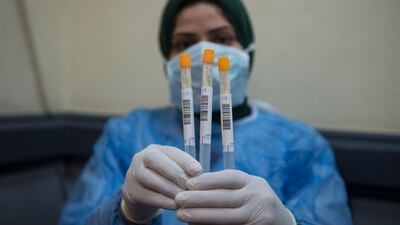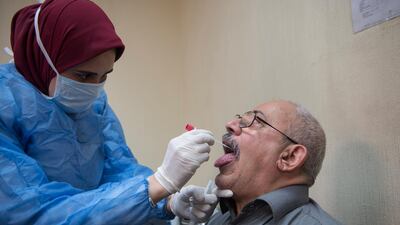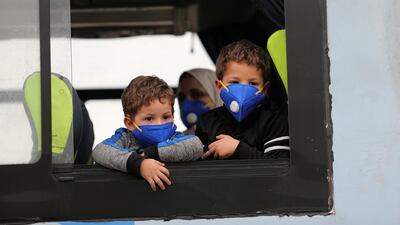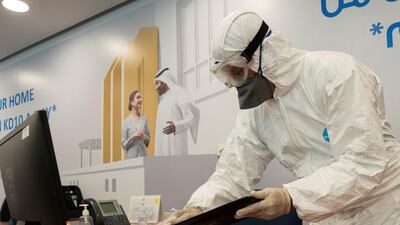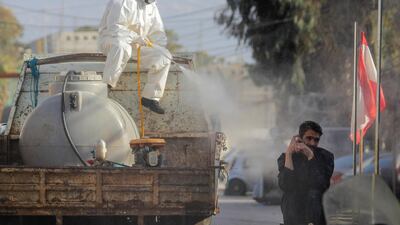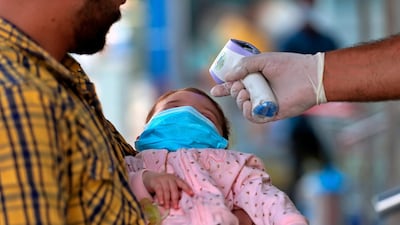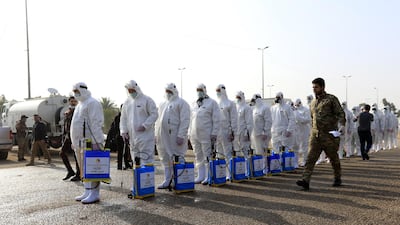The Rafik Hariri University Hospital laboratory in Lebanon is processing more than 200 tests a day for the novel coronavirus but the clinic’s manager promised to do better at communicating after people were left with long waits to get swab results back.
Firass Abiad, the manager at the hospital treating the majority of Lebanon’s 133 Covid-19 cases, tweeted on Tuesday evening to say that they were sorry for causing unnecessary distress and anxiety and promised to do better.
The hospital confirmed to The National that everyone had received the correct test result but they had been left waiting too long for results.
Mr Abiad’s comments also came after he reported that a patient in isolation had tried to run away on March 15 but was stopped and convinced to return to quarantine. “Patients in isolation are under severe mental stress. In addition to ICU beds and ventilators, we should address the mental well-being of our patients,” Mr Abiad tweeted.
He said the hospital has established a call centre to handle communication and would be launching a dedicated mobile app in the coming days.
The state-run National News Agency reported that the call centre would now be open from 9am to 4pm for people to ring for results of their tests. It added that the app would be available from Thursday.
The hospital urged people who have undertaken a test to remain isolated until the results come back in order to stop the spread of the virus.
Mr Abiad also said that they were working to expand their testing capacity to meet increasing demand.
He said that the country’s hospitals have conducted around 2,500 tests so far with around 750 done in other university hospitals and 750 conducted in private hospitals. He said that at a rate of 650 tests per million people in the country, including the refugee population, “means our testing rate is very respectable.”
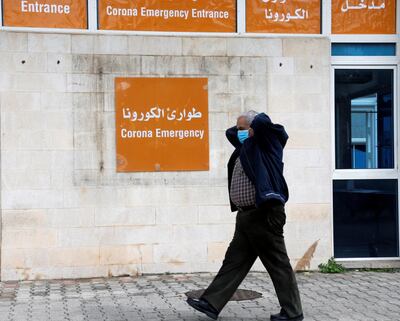
Mr Abiad also gave some more details on the types of cases they are seeing in Lebanon, saying that most current patients come from densely populated homes making the virus spread more easily.
AUB university chancellor Fadlo Khuri also shared “encouraging data” from the university’s Global Health Institute showing the number of cases over time in Lebanon are increasing more slowly than numerous other countries. “Let us hope that increasing social distancing that all, including government, universities, businesses and media, are advocating, continues to yield results,” he said.
